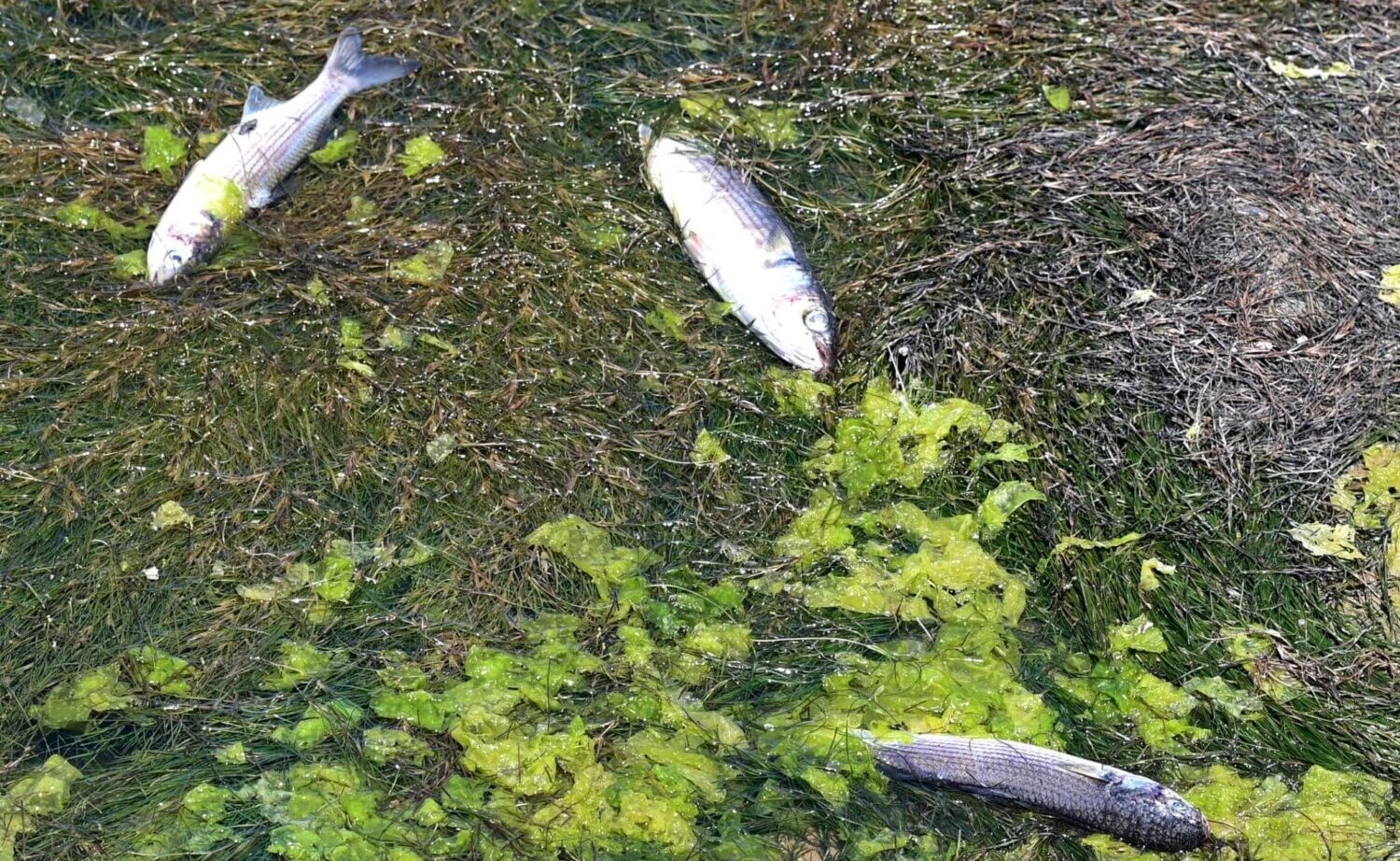Fish dying due to lack of water in stream
Environmental association Almargem has sounded the alarm over the “dramatic situation” at Alcantarilha Stream, caused by an “extreme water shortage affecting the final stretch of the stream.”
The association reports that many animals, especially fish, have been dying due to the lack of water and “low oxygen concentration” at the mouth of the stream.

As soon as it learned of the situation, Almargem “immediately” contacted authorities – namely Silves Municipal Council and the Portuguese Environment Agency (APA) – to “find out if they were aware of the situation and, if so, what measures they had taken or would urgently take (upstream or downstream) to prevent or mitigate this concerning situation.”
The association wants to specifically know if authorities had “planned measures to ensure that this situation does not happen again in the future”; in other words, that water flows are “maintained to ensure the conservation and maintenance of this ecosystem”.

As Almargem points out, it is unclear why this “dramatic situation” is occurring this year given that the stream’s water flow has maintained steady rates in past years, even when it suffered “significant eutrophication” – the excessive growth of algae and aquatic plants due to high nutrient levels, often resulting in low oxygen levels in the water. The association adds that it does not understand how APA has allowed the situation to “reach this breaking point without taking action.”
APA has yet to respond to Almargem’s questions or address the situation, which has prompted the association to reaffirm its calls for “immediate action” and not just temporary fixes. The association also believes that the area should be formally classified as a protected area “so that it can recover its enormous potential in an area that is iconic and has particularly significant natural values,” given that it is located near the Algarve’s marine natural park of Pedra do Valado.

Almargem recalls that the mouth of the stream is part of an area that is proposed to become part of a future Nature Reserve – “whose creation is still pending for unknown reasons, three years after it underwent public consultation”. The association has also volunteered to play a leading role in the classification of the area and its recovery, “restoring its historical role as a fish nursery” – an issue that it believes is all the more pressing given the creation of the nearby marine natural park.




















